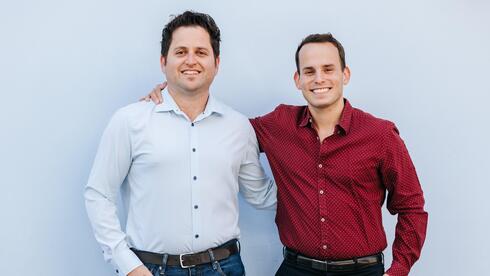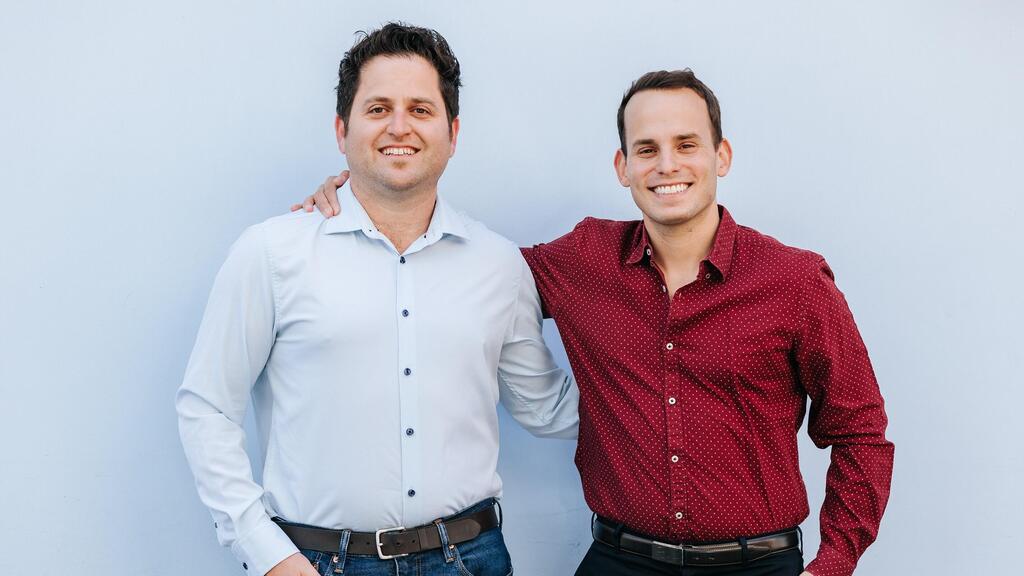
2024 VC Survey
“Israel’s tech sector can recover within months”
Pre-Seed VC firm Fusion joined CTech for its 2024 VC Series to share insights on how the next year may look amid a string of national and global challenges.
“While 2023 presented its share of challenges, many of the Fusion portfolio companies were resilient and hard-working and were able to achieve significant milestones,” said the VC firm. Partners Yair Vardi and Guy Katsovich joined CTech to discuss some of the investment trends the high-tech community can expect in 2024.
For Israel, the country had to overcome the pressures of ongoing judicial reform protests and an outbreak of war with Hamas. “Resilience in the founding team members is key,” Fusion continued. “Founders should be thinking about how to raise the least amount of capital to meet their clients and prove their value. Investors expect the founders to describe a path for profitability/healthy growth as soon as possible.”
VC fund ID
Name of the fund: Fusion
Total assets: $30M
Leading partners: Yair Vardi, Guy Katsovich
Latest investments in Israel: Quack AI, Samplead, Obol, Lychee, Feminai, Dataspan AI, Novacy, Glue Games, Zoma, Dataspan, iBrick
Selected portfolio companies: Agora RE, Digital Owl, Innplay Labs, Behavidence, Base, Hoopo, Acsense.
From your perspective, was 2023 a ‘lost year’, or can the events that happened during it be seen as a springboard for opportunities in 2024?
We were very active in 2023, with 22 new pre-seed investments, and 7 follow-up investments in portfolio companies. Amidst the turmoil, we at Fusion managed to stay the course, retain our focus, and look back at a fruitful year.
This wasn't an easy year for Israelis, and the tech sector - with heated political debate, horrific war following the Oct. 7 terror attack, and global economic downturn.
Historically, the best time for early-stage investments is the years after a financial crisis, and we’re looking forward to doubling down on new startups in the years to come.
What do you believe is more crucial to the state of Israeli tech: the influence of global processes and the global economy, or the local events ranging from the political protest to the war state?
Local events. U.S. growth and publicly traded tech companies have started to recover in Q4 of 2023, and the “SaaS recession” seems behind us. Unfortunately, local events from political protests and the war in Q4 have significantly impacted the ability of the Israeli tech sector to flourish and catch up with the trend.
Has the prestige of Israeli high-tech been damaged, or are the protests and the war merely a 'small bump in the road' from which the sector can recover within months?
The sector can recover within months, and we’re glad most of the reservists within our portfolio have been released to join the workforce after 100 days. Escalation to a war in the North could change that and won’t be “a small bump in the road”, in our opinion.
How much effort was required of you to maintain the fund's status with your investors in 2023? What were their primary concerns and how did you address them?
We were happy to announce our new and first fund in 2023: $20 million of fresh capital to deploy by 2026 into 80-100 Israeli startups. Global investors were concerned by the judicial legislation steps, and we’re glad these steps have been stalled for the time being. In times of war and instability, we decided to over-communicate to shareholders how the situation affects our portfolio companies’ employees and business partners. This was our recommendation to portfolio companies as well.
How are you preparing for the most pessimistic scenarios, such as the continuation of the war in Gaza deep into 2024, the opening of another front in the north, or further reduction of government support for high-tech?
We’ve been advising our companies to go after a U.S. customer base first. Having a POC with an Israeli client, even if it’s a growth company or a Unicorn with headquarters in Israel could be a risk. We’ve already seen that Israeli clients had no attention for startups in Q4 of 2023.
Did you raise fund money in 2023 for an existing fund or a new one? What are your expectations regarding this matter for 2024?
We’ve completed our raise and announced our new $20,000,000 pre-seed fund in June 2023. We’ve made over 40 new investments over the past 24 months.
We plan to continue to invest similarly over 2024-2025, with roughly 40 additional investments and doubling down on winners from the existing portfolio. We initially planned for a 4-year investment period and we believe that the upcoming 18-24 months will offer a unique opportunity to invest in strong and resilient founders.
How many investments did you make in 2023 (in terms of amount and number of deals), and how does it compare to 2022 (in percentage or relative terms)?
We invested in 20 new pre-seed companies, and our pace was similar to 2022.
While 2023 presented its share of challenges, many of the Fusion portfolio companies were resilient and hard-working and were able to achieve significant milestones. Fusion decided to double down on a few of our top performers, including Quack AI, Obol, Samplead, Dataspan AI, Lychee, and Novacy, all of which received the first check from Fusion and quickly reached significant business milestones.
Which high-tech sectors will you focus on in the upcoming year? Which areas will maintain their prominence, and which ones appear less attractive?
Our companies operate in big markets that are usually underserved by the local VC market. We love vertical SaaS and consumer, and we've backed teams across the board in a variety of industries: Enterprise Software, Gaming, Wellness, Education, Insurance, Clean Energy, Future of Work, Real Estate & Mobility to name a few.
Which type of companies stand a better chance of garnering increased attention from VC funds this year - early-stage or advanced rounds?
We’re biased on the earliest stages. Growth rounds will probably pick up only when the IPO window is opened for tech companies. Most analysts are not sure if it will open up in 2024, and perhaps only in 2025, or after the U.S. elections in November.
What changes will you implement in your approach to evaluating investments in startups in the coming year, compared to the previous two years? What practices will you abandon, and what criteria will you now demand from founders?
Resilience in the founding team members is key. Founders should be thinking about how to raise the least amount of capital to meet their clients and prove their value. Investors expect the founders to describe a path for profitability/healthy growth as soon as possible.
Do you think it is likely we will witness encouraging IPOs, the emergence of unicorns, or remarkable exits in 2024?
No. Unfortunately, more unicorns will (and should) die in 2024, before a new generation of startups will raise massive rounds.
Provide an example of an intriguing investment you made in 2023. What sets this company apart, or what is distinctive about its sector?
We invested in Lychee.so back in 2023. Tomer Dean (CEO) and his team have been generating fantastic results for clients ever since. We've seen a lot of teams riding the AI wave by offering short-form videos to increase engagement. It's impressive to see how the Lychee team differentiated themselves from the "long tail" of competitors. They are selling videos instead of video editing software - AI enables a paradigm shift: Rather than sell software to improve an end user's productivity, consider what it looks like to sell *the work itself*. Instead of offering a 15% productivity improvement, Lychee offers a 95% improvement. They execute better than many big incubates and well-financed startups that have raised 10X more capital. Their tech-enabled service is sticky, cost-effective, and clients don't leave.
Practical and current tips for founders planning upcoming money-raising efforts:
Founders should consider raising money in tranches. Raising your first $500K from a few angel investors and pre-seed funds that write small checks might be easier than pitching a larger VC for a $1M check. Offer these "first believers" a more attractive valuation ($2-5M).
This type of gradual fundraising will give you more room to collect early signs of validation; assemble a team and advisory board; and even close some proof-of-concept customers or partnerships, which will support your market momentum later on. Don't be afraid to take $10-30K checks from industry insiders as a way to close your round and validate your idea. If going down this route, you should use SAFEs to minimize the risk of dilution by increasing post-money valuation after reaching milestones.
Can you choose two portfolio startups you believe are poised for success in the coming year and explain why you think they deserve attention?
Samplead
Sector: Sales / AI
Founded: 2023.
Investment: Fusion was the first investor ($150K) and doubled down.
Description:
Samplead is a generative AI sales agent that offers unique prospecting and personalization at scale. Samplead uncovers and executes opportunities to ignite new and dormant leads when they show intent, helping sales teams to stop "spraying and praying", and building a virtual sales rep unique for each company, that can work from every profile.
With Samplead, every salesperson could become a full-time SDR, without any hiring/ramping up.
Quack AI
Sector: Customer support/AI
Founded: 2024 by Nadav Kemper (CEO) and Aviram Roisman (CTO).
Investment: Seed, Fusion was the first investor ($150K) and doubled down.
Description:
Quack AI is building the next generation of customer support OS. Domain expert team with innovative approach for Customer Support value creation. They've been working under the radar and we're very much excited to witness their growth.














